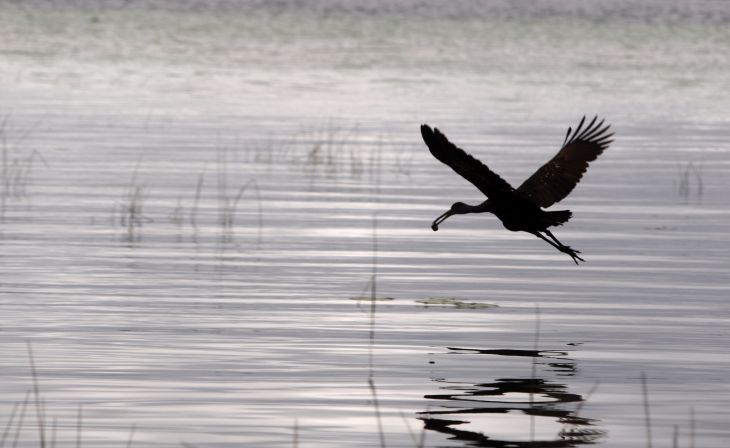Bird tourism has had a boom due to the absence of visitors; however, the activity needs to be properly regulated by state and federal auhorities.
Merida, Yucatan, (September 29, 2021).- As has happened with other tourist activities, bird-tourism or bird watching has suffered the onslaught of the Covid-19 pandemic. However, this is not entirely negative, since the absence of visitors has resulted in “a respite” for the diversity of species that inhabit the state of Yucatan, especially along the coast.
“Bird tourism is an activity focused on bird watching in their wild context, that is, in their natural habitat; and if it is practiced responsibly, it can bring various benefits to the communities where it is practiced, ”explained Gilberto González Kuk, trainer of the Conabio birdwatching program (National Commission for the Knowledge and Use of Biodiversity).
.jpg)
The also professor of the National School of Higher Studies (ENES) of the UNAM explained that this activity can also be carried out in urban contexts, where even some associations or guides that work autonomously promote it.
In Yucatán, bird tourism is an activity that, before the pandemic, was growing by leaps and bounds. Prior to the contingency, the state reported more than 620,000 annual visits focused on bird watching, the academic explained.
“The observers of these species are divided into the committed and the non-committed”, explained Gilberto. “Just as there are people who do this activity recreationally, there are those who specialize in it for scientific and monitoring purposes”, he continued.
According to the report Avitourism with Aquatic and Marine Birds in Mexico, in 2019 bird-tourism generated an economic spill of close to 12 million pesos for service; and almost 3 million pesos per night and transportation in destinations such as Celestún, Río Lagartos, San Felipe, and Progreso.
These figures, explained González Kuk, are mostly concentrated in the coastlines, where the presence of aquatic birds – herons, pelicans, and flamingos – predominates, inhabiting ecosystems such as mangroves, wetlands, and swamps.
.jpg)
Two contrasting poles
The Yucatecan researcher stressed that the pandemic has undoubtedly had a great impact on bird tourism and for him, there can be two contrasting poles:
On the one hand, he said, it has brought about economic problems for those who dedicate themselves to this activity, although there is no specific record of the effects on local guides, cooperatives, or ecotourism ventures.
On the other hand, it has represented a “respite” for the species themselves, since no matter how minimal the ecological impact of bird watching, the presence of people can have a negative impact on their habitat.
“This allowed other species that were not so common to see before, to come out in the open” he added.
Yucatán has several points where you can observe birds, highlighting the Ría Celestún, which receives 430 thousand visits annually; the Rio Lagartos biosphere reserve, where over 137 thousand people arrived annually, and the port of Progreso, which registered 48 thousand visits before the contingency.
In urban contexts, this activity can also be carried out, assured Gilberto González. In Mérida, for example, the points of interest would be the sunken park on the west, the Los Vergeles aquapark, and, more recently, a boarding ground that, when flooded, usually houses various species.
.jpg)
Lack of regulation
In Mexico, there are various official Mexican regulations that regulate wildlife observation ecotourism activities such as whales, whale sharks, among others. Although bird tourism, in general, is carried out annually by more than one thousand 183 million people in the country, there is no rule to regulate this activity.
“Bird tourism is a sustainable use that leaves an economic spill of billions of pesos a year. Bird watchers want to see aquatic and marine birds, parrots, macaws, and raptors, ”said María Elena Sánchez, president of the Teyeliz association, focused on the environment.
.jpg)
She condemned that the federal authorities have ignored birdwatching, that they do not promote it; much less regulate it. He considered that birdwatching is the perfect activity for the conservation of birds and their habitats, which also benefits rural communities economically.
“We urge the authorities of the Ministry of the Environment and Natural Resources (Semarnat) and the Ministry of Tourism (Sectur) to develop a standard to regulate bird-ourism to protect birds and their habitats, as well as to guarantee that the economic spill is distributed equitably, especially in rural areas where birds live ”, María Elena Sánchez concluded.
Source: La Jornada Maya
TYT Newsroom


